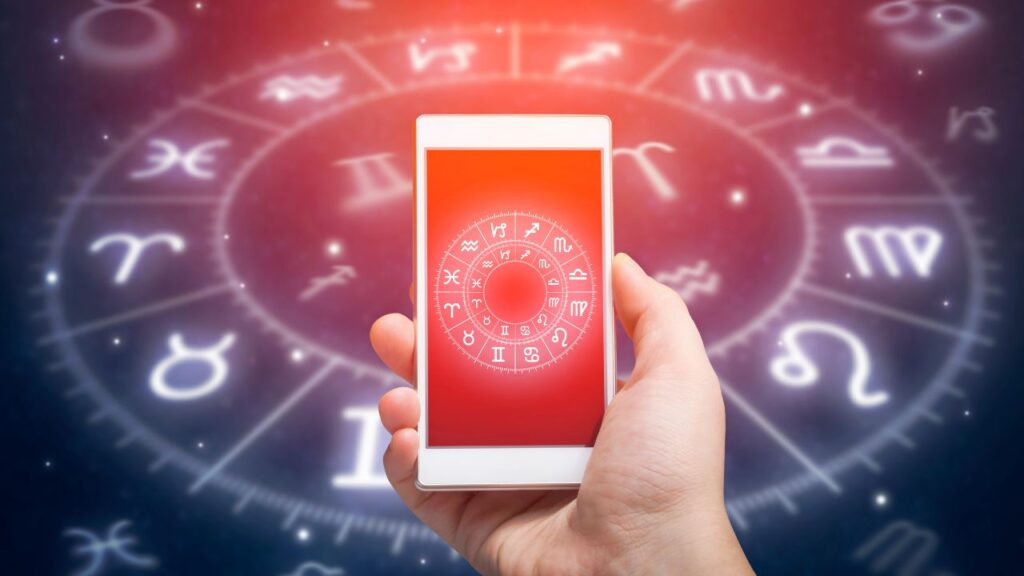The global astrology market is experiencing significant growth, with a notable increase in value from $12.8 billion in 2021 to a projected $22.8 billion by 2031. This growth, reflecting a Compound Annual Growth Rate (CAGR) of 5.7% from 2023 to 2032, highlights the rising popularity of astrology worldwide. A recent report by Allied Market Research delves into the factors driving this expansion, including technological advancements, changing consumer preferences, and the integration of astrology into various sectors.
Technology Expands Astrology’s Reach
One of the key factors contributing to the astrology market’s growth is the increased accessibility provided by technology. The advent of online platforms and mobile apps has made astrology services available to a broader audience, breaking down geographical barriers. With just an internet connection, users can access personalized birth charts, compatibility reports, and other astrological insights. Platforms like AstroTalk, AstroSage, which cater to astrology and psychic enthusiasts, have made it easier than ever for people to explore their astrological interests.
This technological shift has allowed astrology to move from a niche interest to a mainstream cultural phenomenon. Daily horoscopes, once confined to newspapers, are now readily available online, while live consultations with astrologers can be conducted via video chat. These developments have not only made astrology more user-friendly but have also contributed to its increasing popularity among diverse age groups.

Role of Cultural Shifts in Popularity
Astrology, a practice with ancient roots, continues to grow in popularity despite skepticism from some quarters. As more people seek alternative ways to understand themselves and their place in the universe, astrology has become a significant avenue for self-exploration. This cultural shift has seen astrology move from the fringes of society to a central part of modern life.
Many individuals turn to astrology for guidance on various aspects of life, including relationships, career decisions, and personal growth. The increasing acceptance of holistic and spiritual practices has further fueled this trend, making astrology a lucrative industry. The digital revolution, which has made astrological information and services more accessible, has played a crucial role in this transformation.
Market Dynamics and Challenges
While the astrology market is growing rapidly, it is not without challenges. The rise of online astrology platforms has also led to the proliferation of fraudulent practices. Some individuals and organizations have taken advantage of the widespread reach of digital platforms to offer deceptive astrology services. Common tactics include the use of astrology bots that send messages to large numbers of people using collected data.
Despite these challenges, many people continue to seek astrological guidance to navigate life’s complexities. The growing interest in astrology has also led to its integration with other industries, such as fashion, beauty, and wellness. Brands are increasingly incorporating zodiac themes into their products and marketing strategies, appealing to consumers who identify strongly with their astrological signs.

Segmentation and Regional Analysis
The astrology market is segmented based on type, mode, end-user generation, and region. The types of astrology include love astrology, Vedic astrology, natal astrology, medical astrology, horary astrology, electional astrology, and Uranian astrology. In terms of mode, the market is divided into online and offline segments, with the online segment further split into apps and websites.
The market also considers different end-user generations, including Gen Z, millennials, Gen X, and boomers. Regionally, the market is analyzed across India, North America, Europe, Indo-Pacific, and LAMEA (Latin America, Middle East, and Africa).
Indicators of Global Astrology Market
The global astrology market is undergoing significant growth, driven by technological advancements, cultural shifts, and changing consumer preferences. As astrology continues to evolve and integrate with various sectors, its popularity shows no signs of waning. With a projected market value of $22.8 billion by 2031, the astrology industry presents a substantial opportunity for brands looking to capitalize on these trends through astrological marketing.
The future of astrology is bright, as it remains a captivating and inspiring force for millions of people worldwide.


